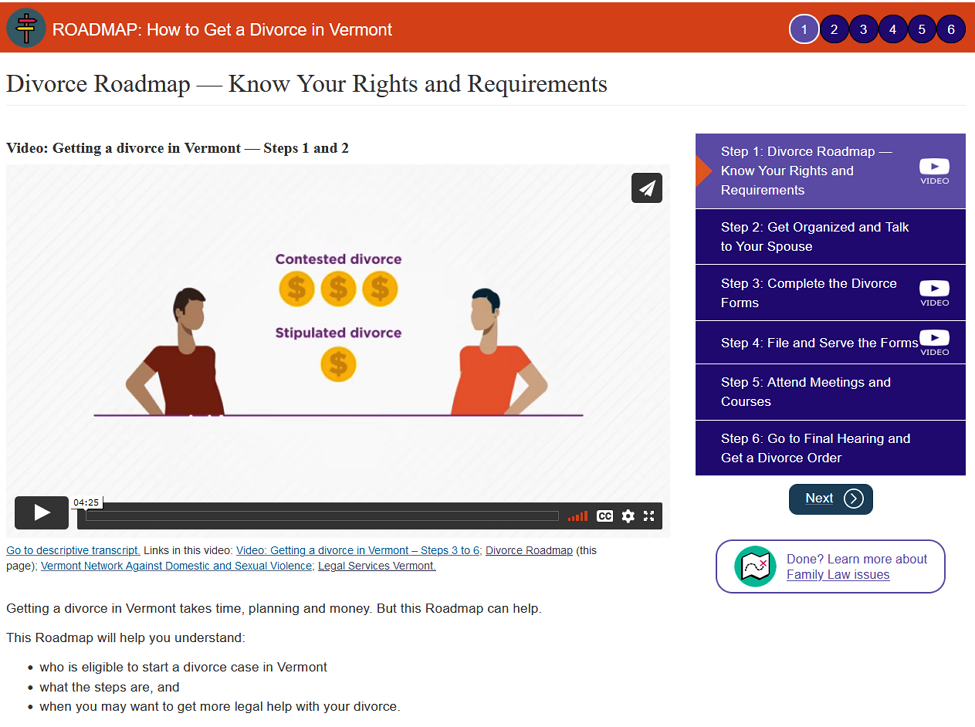Divorce in Vermont
Free Event: Family Law Clinics
Legal Services Vermont is hosting free Family Law Clinics for low-income Vermonters. They are by appointment only and space is limited. You can talk to a lawyer by phone, video conference or in-person in Burlington. They can answer your questions about divorce, parentage, custody, visitation, child support and more. Learn more about the Family Law Clinics.
ROADMAP: How to Get a Divorce in Vermont
Follow this link to learn the steps to getting a divorce in Vermont. Watch our videos, read our detailed instructions and follow the steps in our Divorce Roadmap.
A few questions related to divorce
Q. How is a parentage case different from a divorce?
A. There are several differences between a parentage case and a divorce. In a parentage case:
- The court will not decide any property issues. The only issues decided in a parentage case are parentage, custody, visitation and child support.
- If either party disputes that the alleged father is the father of the child, you may have to go through a paternity test first.
- The court will give a child support order but cannot give a spousal support order (alimony).
Vermont has a parentage law covering several different ways someone can be a found to be a “parent.” Learn more on our Parentage page.
Q. What steps do I take to end a civil union?
A. To end a civil union that took place in Vermont, follow the same steps as a divorce. On some of the forms you will see a place to select a civil union dissolution. Follow this link to our Divorce Roadmap to learn the steps. Watch our videos, read our detailed instructions and follow the steps in our Divorce Roadmap.
If you had an out-of-state civil union, you can use this same process only if you don’t have children together and if you are in agreement on the details of the dissolution.
Q. What steps do I take for a legal separation?
A. The steps in our Divorce Roadmap also generally apply if you want a legal separation. On some of the forms you will see a place to select a legal separation. This is a legal status that is different than a divorce. In a legal separation you can divide your finances and property, and plan the custody and support of your children. But you are still married and you cannot marry someone else.
Q. What if we were never married but we need to divide up our property?
A. If you and your partner were never married but own property together, you can start a partition case in the Civil Division of Vermont Superior Court. These cases are complicated. You may want to contact the Vermont Bar Association Lawyer Referral Service to hire a private lawyer. At Legal Services Vermont and Vermont Legal Aid, we cannot help Vermonters with partition cases.
Q. If I’m the defendant and I get the divorce papers in the mail, am I agreeing to everything in the Complaint if I sign and return the Acceptance of Service form?
A. No. By signing and returning the Acceptance of Service form, you are only agreeing that you got the divorce papers. You will have the chance to explain where you stand on issues at the case manager’s conference and any mediation or formal hearings you may have. Learn more about the divorce process in Vermont.

